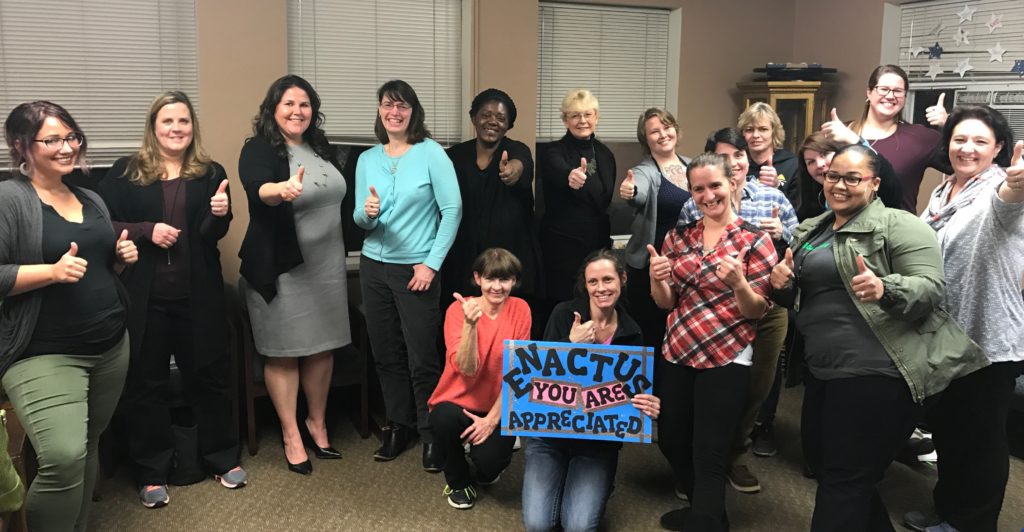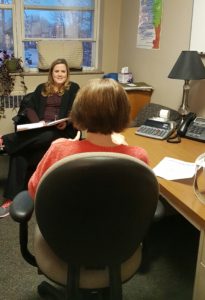 By Jennifer Tibbetts
By Jennifer Tibbetts
Volunteers are an integral part of the rebuilding of hope, sense of self, and connections that we do at CMC. Volunteer groups are interwoven throughout the housing program at CMC and offer educational and social opportunities for residents. Through volunteer interactions, women build skills to then become engaged in the community through their own acts of volunteerism.
One of my more recent favorite memories is when the Mount Mercy University Enactus group hosted a mock job fair for residents, which was the finale of a series of employment skill-building sessions. The group arranged for several local business leaders to volunteer their time to conduct interviews with women in the housing program to practice their new interview and employment skills.
 The night of the mock interviews, it turned out that all of the volunteer business leaders were female. Seeing an opportunity for connection, I decided to ask the volunteers to share a little about their journey to where they are today. This started a truly powerful discussion as the female businesswomen shared their successes and struggles, building bridges with residents’ stories. You could see that the residents connected to their stories which were helping residents to regain a sense of hope for their own lives. These volunteers had a larger impact than their original “assignment.”
The night of the mock interviews, it turned out that all of the volunteer business leaders were female. Seeing an opportunity for connection, I decided to ask the volunteers to share a little about their journey to where they are today. This started a truly powerful discussion as the female businesswomen shared their successes and struggles, building bridges with residents’ stories. You could see that the residents connected to their stories which were helping residents to regain a sense of hope for their own lives. These volunteers had a larger impact than their original “assignment.”
Many other volunteers and groups help build the same sense of hope and connection in the Transitional Housing program through their service. The Soroptimists cook and share a weekly meal with residents, and a group of Master Gardeners teach valuable skills in garden preparation, care, and harvesting.
If you want to learn more about ways to support skill-building and connection in the Transitional Housing Program, please contact [email protected].
 Jennifer is the Transitional Housing Program Manager and has used her 18 years of experience in social services to implement female-responsive programming at CMC. Jennifer is proud to be a part of a mission-driven organization like the Catherine McAuley Center and feels privileged to be in a role in which she can help create a safe and supportive environment that allows women to realize their own potential. In her free time Jennifer finds creative ways to be an advocate for women throughout the state, and organizes community groups and female-led initiatives that allow women to connect and find their voice.
Jennifer is the Transitional Housing Program Manager and has used her 18 years of experience in social services to implement female-responsive programming at CMC. Jennifer is proud to be a part of a mission-driven organization like the Catherine McAuley Center and feels privileged to be in a role in which she can help create a safe and supportive environment that allows women to realize their own potential. In her free time Jennifer finds creative ways to be an advocate for women throughout the state, and organizes community groups and female-led initiatives that allow women to connect and find their voice.

